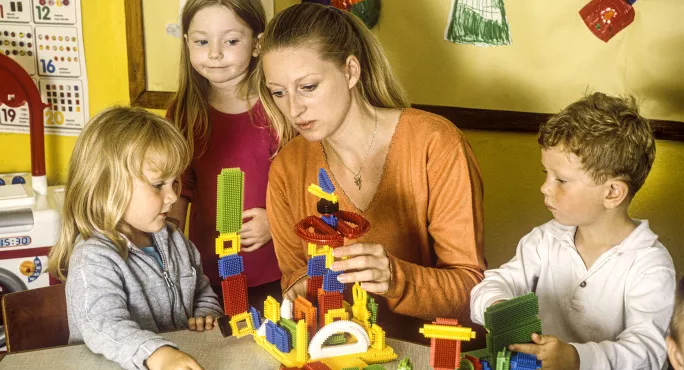The number of 3- to 4-year-olds receiving early years pupil premium (EYPP)Ìıis at the highest level on record, according to new government data published today.
The parents of pupils aged 3 or 4 who receive 15 hours of free childcare and are in receipt of one or more of a list of benefits are eligible for the EYPP, which means that their provider gets an extra cash payment of up to £302 per year.
The figure for pupils in receipt of the entitlement this year reachedÌı116,500, which is a jump of 8 per cent since 2021 and 15 per cent since 2020.
The Early Years Alliance said that the âsharpâ increase was âvery concerningâ although ânot surprisingâ, and called for the EYPP to be raised to match primary pupil levels.
âWe know that children from disadvantaged backgrounds benefit the most from high-quality early years provision, and yet at just £342 per child per year, the EYPP is still only a fraction of the £1,385 pupil premium that primary schools currently receive,â said Neil Leitch, CEO of the Early Years Alliance.
âThe early years are critical in shaping a childâs future development and opportunities. Therefore, there is no justification as to why the sector should receive a lower pupil premium.ÌıÌı
âAs such, weÌıurge the government to increaseÌıEYPPÌıfundingÌıto at least match primary schoolsâ funding levels, and in the long-term, commit to theÌıwider sector investmentÌıneeded to ensure that earlyÌıyearsÌıproviders canÌıcontinue to deliver theÌıhigh-quality education,Ìıcare andÌısupport that these childrenÌıbothÌıneedÌıand deserve.â
Increase in pupils registered for funded provision
The data, which was collected in a snapshot survey in January, also shows that the number of pupils registered for the 30-hour entitlement of government-funded early years provision is also at its highest ever level.
All 3- and 4-year-olds, and some eligible disadvantaged 2-year-olds, are entitled to 570 hours of government-funded early years provision a year, usually taken as 15 hours a week over 38 weeks.
But some 3- and 4-year-olds with working parents are entitled to an additional 570 hours, taking their entitlement to 30 hours a week. This is generally if each parent - or a single parent if theyâre part of a lone-parent family - earns a weekly minimum equivalent to 16 hours at the national minimum wage or living wage and less than £100,000 per year.
The number of children eligible for this currently sits atÌı348,100 - up 6 per cent on last year and 1 per cent on the year before.
The number of eligible 2-year-olds registered for the 15-hour entitlement has gone up on last yearâs figures but down on the year previously, while the number of 3- and 4-year-olds registered stayed stable on last yearâs figures, and was down on 2020.
The government has said that this âlikely reflects the impact of Covid-19 uncertainty on providers and parents followed by some reversal as the uncertainty easedâ.
Number of pupils eligible for free school meals risingÌı
Earlier this year, a freedom of information request submitted by the Education Policy Institute (EPI) to the DfE revealed the number of children in maintained nursery schools who were eligible to receive free school meals (FSM) was rising.Ìı
The data revealed that around 23,600 nursery children (a total of 8 per cent) in the maintained nursery sector were eligible for FSM in 2020-21, up fromÌı20,918 in 2020.
But the institute also raised concerns over the number of pupils who could be missing out on FSM as they do not meet the eligibility criteria, as well as not applying or not attending a maintained nursery school that is required to provide the meals.Ìı





